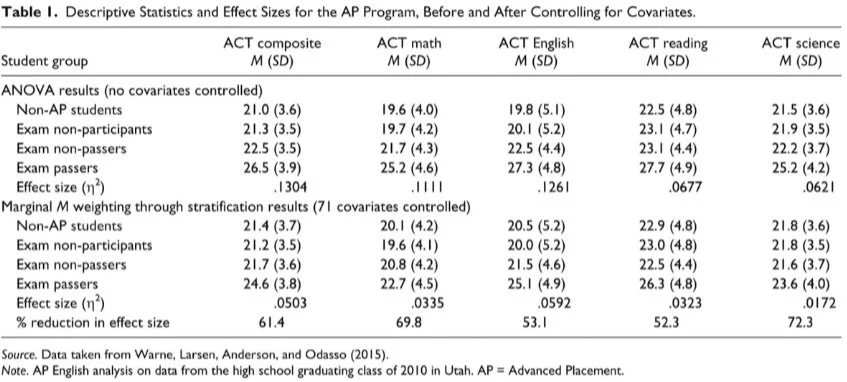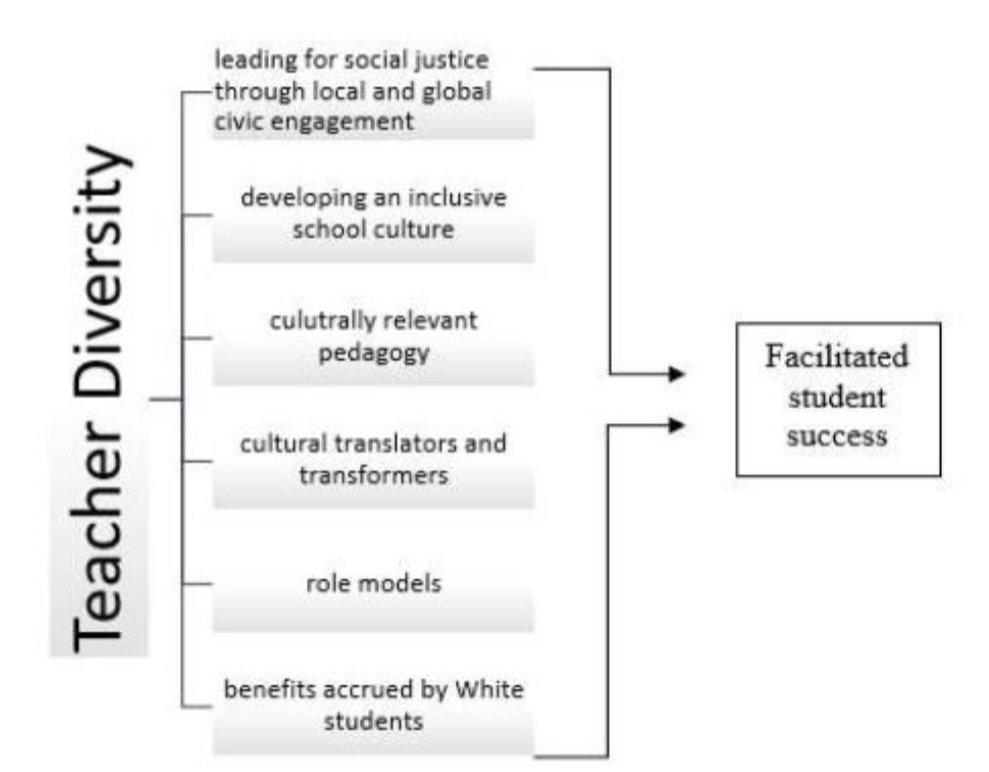Breaking The Silence: Investigating Echo Chambers in AP Education
By Elle Simons and Reese Watson
Everyone knows that one person in their school: the know it all, the advancer, the mathlete, the overachiever. To paint a picture in your mind, you probably already know their inner circle: clean cut, maybe even straight A’s. But do you really? Is it really a fact that you are who you associate with, or is it more of an expectation? Can you be trapped in a bubble you didn’t even know was there to begin with, or were you just blind to the system?
For some, high school is an era of exploration─a time to discover who you are, or what you’re good at. However, for others, it's a competition, merely used to boost their score in the game of life. Advanced placement classes often paint a picture of academic prestige and success. However, beneath the surface may lie a complex phenomenon that many turn a blind eye to… Whether by class, environment, or societal expectations, is there such a thing as an AP echo chamber in our educational system, and if so, why, and is there any hope of breaking it?
For context, Advanced Placement (AP) classes in the United States are currently administered by the College Board via a website called AP Classroom. This platform allows students to access their designated classes, view/send their test scores, and learn more about college requirements and credits.
Upon examining their website, their benefits of taking these courses range from building valuable skills and confidence, which challenges students to better prepare for higher level education, to earning college credit and standing out in applications. In fact, they claim that 85% of selective colleges and universities report that a student’s AP experience favorably impacts admission decisions.
However, it's important to ask: How significant is their claim to correlation about AP courses and student success?
A document referencing AP students achieving higher ACT and SAT scores.
The provided stimulus offers insights into the comparative statistics between non-AP students and AP exam passers in ACT scores, showcasing a surprising distinction. This distinction underscores the fundamental promise of AP: college preparation and a system of incentives which encourage students to “get ahead,” even if it means coughing up a pretty penny every AP testing season.
But according to other sources, a study done by Ashland University’s College of Education discovered that when AP students were asked their reasoning for enrolling in AP classes, their answers varied from “escaping the chaos” to “having all the best teachers,” and “being considered a serious student.” Which, when considered, makes College Boards' claims to why students really take AP classes, with promises of scholarships and financial benefits, a little less practical. When we asked Jenks students why AP was right for them, this is what they had to say.
"Sometimes when I take on-level classes, I feel like I'm treated less than what I'm expected to do," said Ashley Wagga (12). "They are much easier on me, which actually makes it hard to pay attention or do the work."
Another student said this.
"I wanted to learn more and, from my experience, noticed that teachers often put more effort into their AP classes rather than on-level," said Daphne Reagle (11).
But on the opposite side of the spectrum, some students tend to drift away from APs for a plethora of reasons.
“I agree with the idea that APs from the outside looking in are cliquish,” said student athlete, Addie Van Gilder (10). “I just didn’t need that kind of workload or difficulty in my life, especially with my schedule.”
Referring back to Ashland University’s study, students' preconceived notion that success could only be achieved through Advanced Placement reveals itself to be quite controversial within the high school climate. We’re all familiar with movies like Mean Girls or High School Musical, where cliques are quick to identify and comedically stereotyped, but in reality, cliques do exist, and by deeming yourself a “serious student” because of your role in AP, you’re inserting yourself into a lesser-known clique.
This clique in particular is one that remains unnamed but contains the students in school who take AP classes and surround themselves exclusively with other students who fit in that category. These students, without knowing, are potentially taking part in an echo chamber, which by GCF Global’s definition, is an environment where a person only encounters information or opinions that reflect and reinforce their own.
But why is this problematic? Consider the statistics: according to CAP 20, for every 1000 students in Oklahoma, only 141 are enrolled in at least one AP course. Moreover, 15% of students across America attend schools that don’t even offer one AP class. This disparity is further exacerbated by racial inequities, with Black, Latinx, and Indigenous students being less likely to enroll in an AP course, take an AP test, and receive a passing score on an AP exam.
These statistics represent the nature of echo chambers with AP classes. By clustering together with similar peers, students risk limiting their exposure to diverse perspectives and critical discourse. This begs the question: what factors contribute to the formation of these echo chambers, and are they destined to happen or are they influenced by an element that occurs outside of the classroom?
After doing some digging into the dynamics, it becomes evident that the formation of these cliques aren't just a coincidence, but rather the product of several intertwined factors─one of the most evidence being social dynamics within the school. This includes peer pressure and an overall desire for belonging.
A study conducted at the University of Montreal recounts these dynamics in school, describing that individuals have a unique spirit which is driven towards independent goals, but simultaneously feel an innate need to belong to a group. Though, it's clear that to achieve this sense of belonging–you need to have a base of security to build it on. This concept is described in Maslow's famous hierarchy of needs. According to Maslow, we have five categories of needs which are physiological, safety, love, esteem, and self-actualization.
The study describes how in order to fulfill your sense of belonging, you have to satisfy your physiological and safety needs. Once those are met, individuals seek a sense of love, belonging, and intimacy with peers or family and more importantly–a sense of connection within social groups or communities. This example shows how the sense of belonging within AP classes can also intersect with demographic factors, influencing which students feel included or excluded within these academic environments. Students from marginalized or underrepresented groups may face roadblocks on the AP tracks due to their lack of physiological and safety fulfillment, contributing to a lack of inclusivity in these groups and cliques.
Something that is also worth taking a dive into is an intriguing phenomenon that is usually overlooked in the world of AP: the hidden curriculum. While regular curriculum is characterized by content and skills that are taught, hidden curriculum refers to the implicit cultural norms, values, and expectations that shape the classroom environment. Some examples of these norms could be, but are not limited to, being prepared to read for the class, take notes, engage, study, interact with peers.
In these "elite" academic settings, the hidden curriculum manifests in various ways, predominantly showing itself as the unspoken expectations of rigorous academic performance. These could be skills such as navigating complex social situations and having intellectual discourse. Nonetheless, a lot of these skills are not taught through an educator–but rather, usually lessons that only privilege can teach.
This hidden curriculum can unintentionally reinforce echo chambers by creating a homogenous environment where only certain viewpoints are valued and affirmed, while diverse viewpoints are not simply dismissed, but never heard. More so, students in these rigorous academic spaces that never fully understood these hidden lessons could potentially feel not only unrepresented, but also unmotivated to check off "AP" on their enrollment card the following year.
It also becomes increasingly evident that the diversity of educators alone plays a pivotal role in who takes AP, who stays in AP, and who feels represented in AP. Data from 2020-2021 shows that in the United States, almost 80% of teachers were white, and were also predominantly women, who make up 76.8% of all US public school teachers. So why is this statistic important?
Well, it can be inferred that in a general aspect that students would probably be more inclined to succeed if they see themselves in their teachers, but a study done at the University of North Carolina at Chapel Hill confirms this assumption. When looking at the effects of teacher diversity on Hispanic student achievement in Texas, they concluded that when the students were taught by a teacher who was also Hispanic, it led to a 0.064 standard-deviation increase in reading and math scores. This implies that having a teacher that students can see themselves in has a meaningful, positive impact on student achievement.
Relating back to echo chambers in general, it also can be noted that having a diverse staff, especially in Advanced Placement, can open leeway to diverse ideas. To clarify, educators who are white can be effective in diverse teaching–but having more teachers of color can effectively employ a more true culturally responsive pedagogy, which in a lack of better terms, is an educational approach that recognizes and values students' cultural backgrounds.
Journal of School Administration Research and Development.
Since educators from diverse backgrounds bring a wealth of cultural knowledge and perspective that can lead to insights within the classroom, it can be assumed that without a more diverse staff, classrooms may be more susceptible to an environment that only values a singular opinion/perspective.
Having explored the complex nature of AP classrooms, from hidden curriculums to diversity, it's quite overwhelming. It's apparent that these environments create room for echo chambers unintentionally, which can be confusing when debating solutions. Though, the reality is, we need to acknowledge that these issues are multifaceted and interconnected in so many ways without assuming they are impossible to address.
But fear not! Actually, studies show that the number of teachers of color in schools has dramatically increased in the last few decades and continues to grow. In three decades, the number of teachers of color has increased at more than three times the rate of the number of White, non-Hispantic teachers. Another positive improvement is that most colleges actually offer classes focused on hidden curriculum to assure that every student feels a sense of belonging and security in their education. On top of that, Oklahoma is enforcing a bill that will require every public school in Oklahoma to offer at least 4 AP courses, even in rural areas, ensuring that no student feels left out.
As of now, there are no direct studies that cover echo chambers and their effects specifically in Advanced Placement courses, but it's safe to assume that they exist, and that in order to address the problem: we need to evaluate ourselves. The first step to fixing any problem is admitting you have one–so when you are engaging in intellectual discussion such as Socratic Seminars or conversation with classmates, make sure that you consider all perspectives and empower every student's voice.
No matter what academic path they chose to take, students have the right to express their opinions and diverse experiences. In the end, school should steer away from promoting separation and rather, providing a platform for student togetherness. Obviously, this is easier said than done. But, the next time you are having a conversation, make sure that you are creating an environment where your peers feel comfortable expressing their perspectives and more importantly, considering others perspectives.


